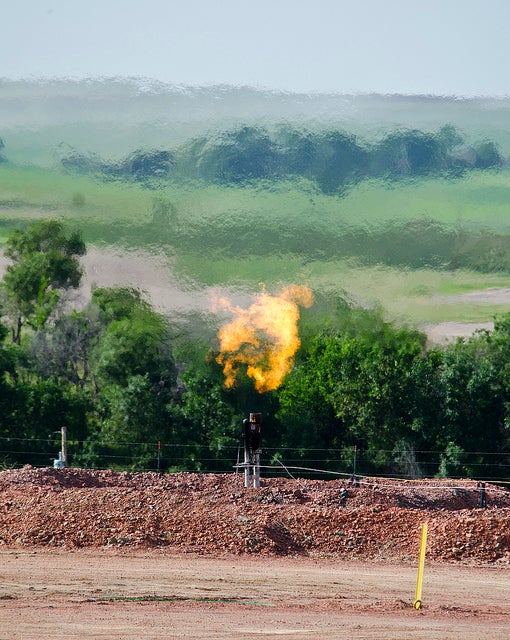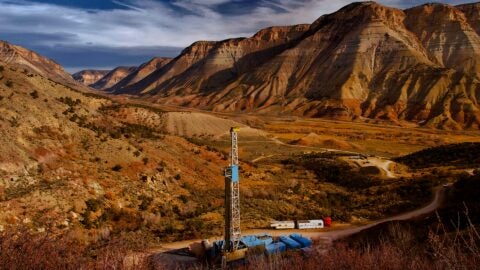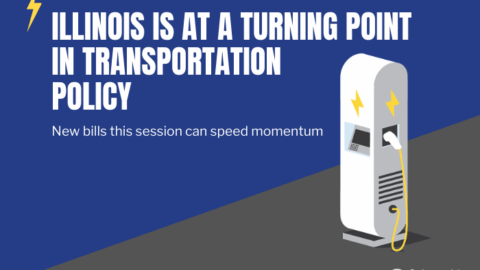Five Reasons Now is the Time for Federal Standards to Reduce Oil and Gas Methane Emissions

Today sixteen leaders of the nation’s largest environmental and conservation groups, including EDF’s president Fred Krupp, came together to call for urgent federal action to curb methane emissions from oil and gas development.
This past march, President Obama laid out his Strategy to Reduce Methane Emissions, where he announced that the Environmental Protection Agency will decide by this fall how best to reduce methane pollution from the oil and gas sector. The Strategy builds on the commitment from his 2012 State of the Union Address that the development of oil and gas resources must not put Americans’ health and safety at risk.
Here are five reasons why reducing methane is a national priority that requires the Obama administration to follow through on its commitment:
1. Methane and associated air pollution from oil and gas operations is heating up the climate and hurting our health.
Methane is a super pollutant, more than 80 times as powerful as carbon dioxide in causing global warming over the first 20 years. Data from a report prepared by leading climate scientists from the Intergovernmental Panel on Climate Change (IPCC) suggests that nearly a quarter of the warming we are experiencing today is caused by methane and other short term climate pollution. The oil and natural gas sector is the largest industrial source of methane pollution.
Along with methane emissions, oil and gas operations also emit dangerous pollutants including smog-forming volatile organic compounds (VOCs), and cancer-causing pollutants like benzene. Reducing methane emissions will also deliver significant public health co-benefits by cutting smog and toxic air pollutants in our communities.
2. The Oil and gas industry won’t achieve the needed reductions on their own.
Some oil and gas companies have taken steps to reduce methane pollution, but there are thousands of companies, and many only focus on quarterly earnings and won’t spend one dollar more than they have to no matter how obvious the need. A recent EPA Inspector General report found voluntary efforts from the oil and gas industry aren’t enough to achieve needed reductions in methane emissions to slow their impact on our climate. EPA has the legal authority under the Clean Air Act to reduce this harmful pollution. In order to avoid the worst impacts of climate change and protect air quality, we need to put strong methane and air pollution rules in place.
3. Simple, cost-effective solutions are available today.
An ICF report from earlier this year shows simple, low-cost technologies commercially available today can slash methane emissions by 40% for only one penny per thousand cubic feet of natural gas (currently around $4). Other analysis suggests we can do even more. American innovation is making it possible to reduce methane pollution from the onshore oil and gas sector significantly in the next five years. And reducing methane emissions through proven technologies wouldn’t just help the planet; methane emitted to the atmosphere is American energy gone to waste.
4. There is a growing consensus that we can and must act.
This letter demonstrates the environmental community stands in agreement that now is the time to demand federal action to address harmful methane emissions from the oil and gas sector. But these leaders are not alone. Just this month Secretary Hillary Clinton underscored the need for action saying “Methane leaks in the production of natural gas are particularly troubling, so it’s crucial we put in place smart regulations and enforce them.”
Earlier this year Colorado led the country as the first state to directly regulate methane regulations in the country, and California has announced it will address methane as well. These states can and should be models for effective, commonsense methane national policy.
5. We need to clean up our current energy system while building a clean energy economy for tomorrow.
EDF and these 15 other groups are working hard to accelerate energy efficiency and renewables – the key to reaching a low carbon, clean energy future. But since we can’t reach this goal overnight, we need to do all we can to clean up our current energy mix to lessen the overall impact on the climate, where we know we can, to reach our greenhouse gas reduction goals.
Both President Obama and EPA Administrator McCarthy have made it clear significantly reducing methane emissions is a critical step in a national strategy to combat global warming. A decision by EPA to directly regulate methane emissions from the oil and gas industry – both new and existing sources – will demonstrate they are serious about tackling climate change. Now is the time to act.














One Comment
Although this may not be as important as the five reasons listed above, national standards to reduce methane emissions would probably increase profits by oil & gas companies, even if only nominally. Of course, increasing profits for companies that are already filthy rich aren’t as important as saving the planet, nevertheless presenting this beneficial side effect to the drillers might hasten the adoption of these standards.